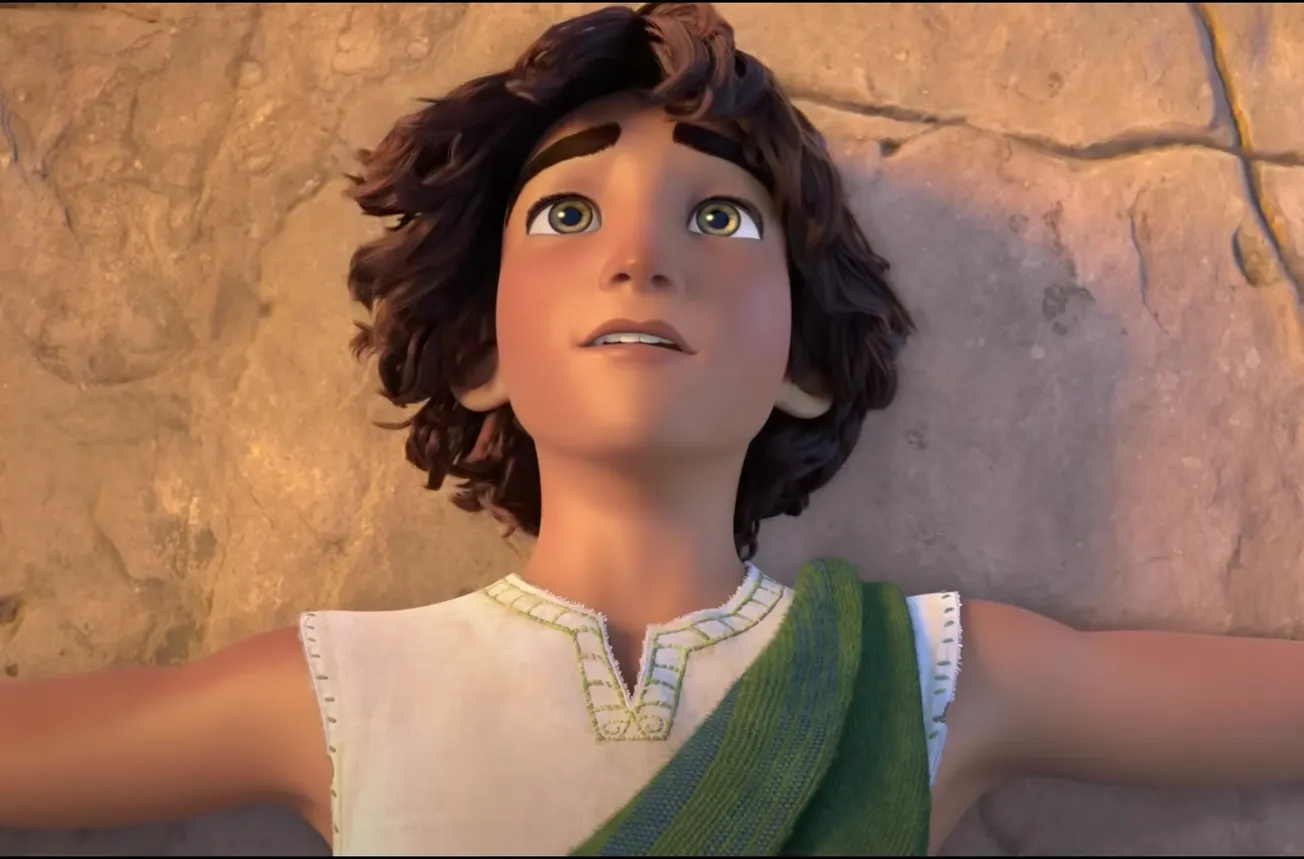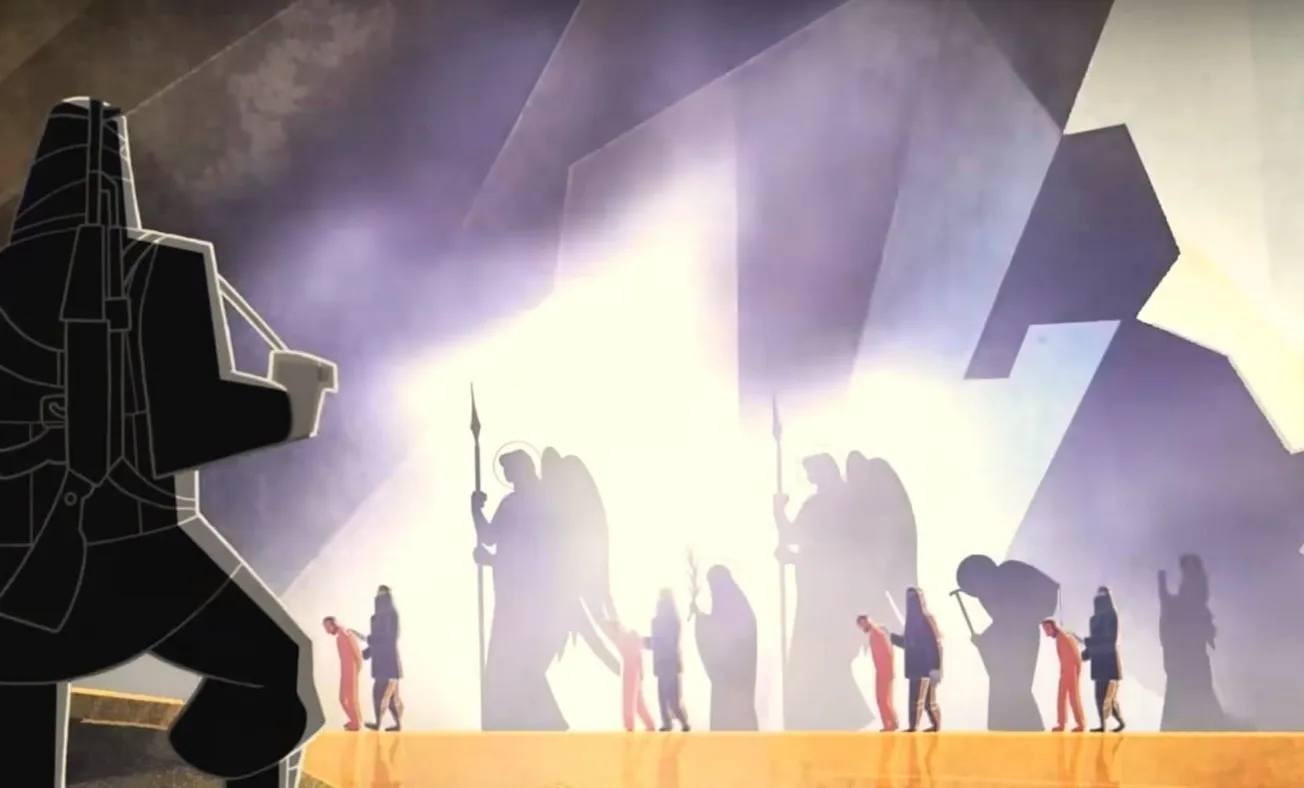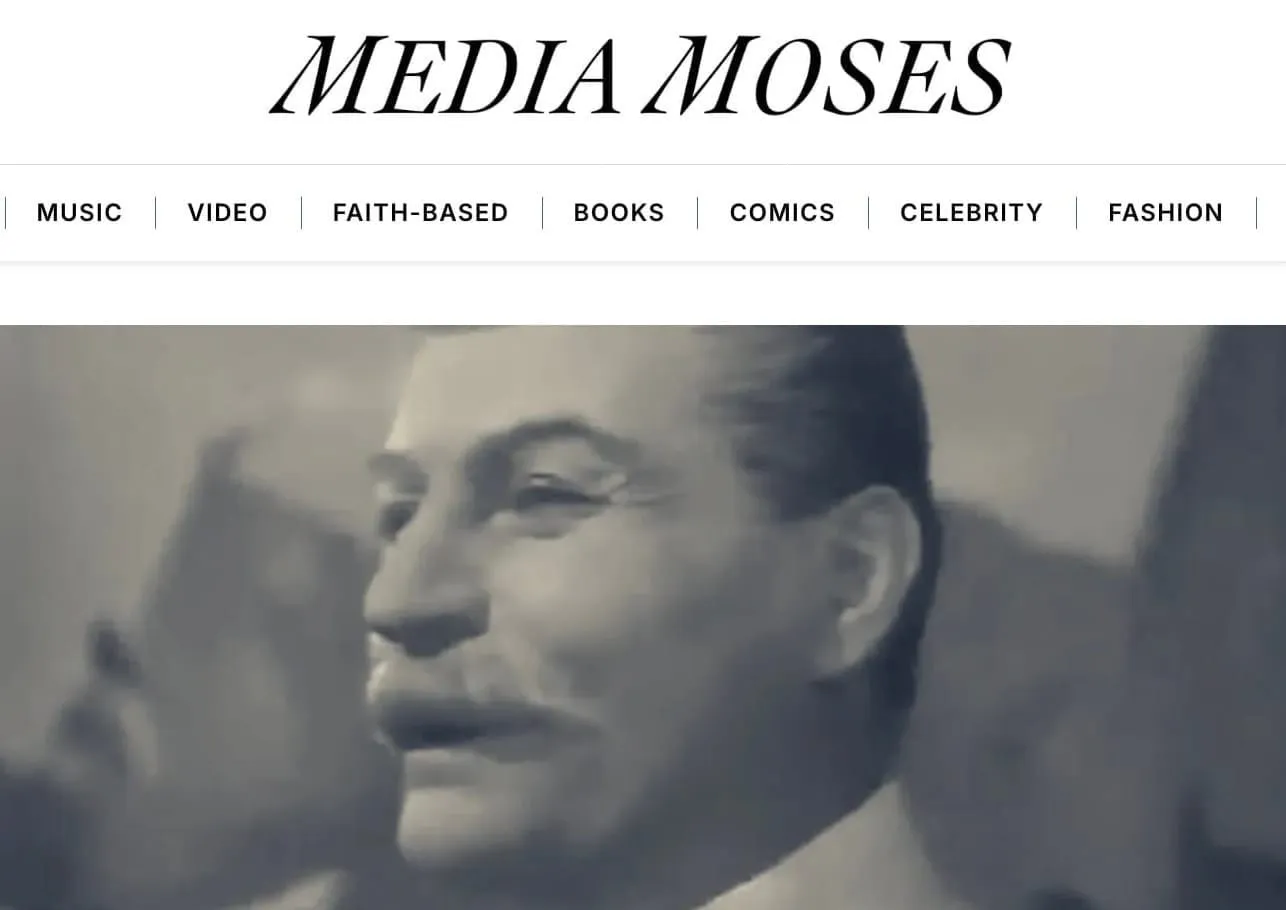The New York Times is finally giving The Daily Wire the reward due them for protecting kids with their far superior content? Finally? Nope. And that's the point.
The Western Journal is also getting a kick out of how the NYT is lighting the path for us all here, but we can illuminate what we mean when we say that the NYT has unwittingly led us to Chip Chilla as a great show for kids to watch, and how funny this all is when unhappy liberal critics let their mask slip.
Here is The Western Journal's story, called "Congrats, Daily Wire: Your Cartoon Just Drove a NYT Critic Out of Her Mind." Ha, I just love that title.
I can cut straight to the end for you... it's not much of a spoiler. The best reason to watch Chip Chilla is that writers from the NYT wouldn't like it. That's it. But, many don't understand why this is good, and wouldn't accept this simple answer, so we will give you more reason than that. But this is enough of a reason for me to try the show, if not to buy the subscription outright. Because I know just how corrupted and sick of an institution they are, and I've read the NYT article we are both referencing here. As such, it makes me very confident in my choice to peeve them off as much as humanly possible!
Here is the famed, dull article, complete with cynical edge, where they claim that Chip Chilla is a conservative knock-off of Bluey.
First off, Bluey is a very popular and great show, so this accusation of Chip Chilla being a copy cat of this exceptional show isn't much of an issue for parents who want good quality entertainment for their little tike. Art is often derivative of other art. It's how well you craft your show, and how much respect you have for the artform that matters. But, all this means is that if it's anything like Bluey it definitely deserves a view, because it's not only high quality, it also has better values than many of these liberals can tolerate. And this, as we'll see, is really the issue they have. More on this, soon.
So, if that's the case, what's the big deal? Well, the title of the article is "The Fantasy of the Fun TV Dad." And they mean it. All this Dad nonsense is, to them, a fantasy. And this is what they really don't like.
They don't like what?
Dads? Fantasy? Which one?
Both.
Just listen to the reasoning. Everything from a father being "creepily present," to it (the show) presenting a "conservative fantasy for parents" (as opposed to a progressive one in Bluey), to it having a strong father figure who leads (as opposed to a weak one who lets children and wife lead him around) this show must be "the bees knees" for normal people with normal families.
But the writer, Amanda Hess, doesn't think it's normal at all. Nor should it be. She has her own fantasy, that she will be able to be present for the ten minutes that a mother can manage to give some undivided attention to her child.
Ok, then. Wow, don't get overly ambitious or anything.
She finds it "creepy" instead, when a father figure is depicted as happily in charge, giving lessons and teachable moments to his children, and he is at home working while homeschooling his children. Her biggest complaint? It's a "fantasy" of perfectly present parenting that rips off Bluey. This father's presence is the connective tissue between them both (besides some style and color choices in these shows). It presents a level of parental attention that, apparently, she can't manage to do as a mother. That's what she implies.
We wouldn't want more attention given to children now, would we?
I'm not trying to level any accusation of her, as a mother at all. But, as I said, this is what she is implying. That this "fantasy" is a fantasy because it is unrealistic, and it offers a model-parent present in the shows that parents themselves can't actually fulfill.
But, I beg to differ.
Not only is this not true in my personal experience, it's not true in my parents'. We consider this to be our duty. Is this because we are Christians? Possibly, but she offers a clue as to why she feels this way, and it comes in disturbing fashion, as she states that her closest comparison to how she sees fathers now is the disturbingly absent father figures from older sitcoms, who get glued to TV's like Al Bundy, and the funnily absent fathers as depicted in TikTok videos who sit idly by watching their phones instead of doing house work. This is normal fatherhood, for her, apparently.
Who could've known?
Sure, whether this parental model (as presented in Chip Chilla or Bluey) is aspirational, inspirational, or completely unrealistic is obviously up to you to decide, as a viewer. Not every parent can (as in Chip Chilla's case) be a stay-at-home journalist who makes object lessons for their kids to learn from during their work week. But, this show also isn't suggesting that this is who you need to be as a parent. Only that this is how their family is, and it is serving them well.
And why wouldn't it? After all, if you did aspire to do this as a parent, maybe it could work for you, too.
So, what this presents is a difference between the two shows in these fantasy elements. A conservative might paint a picture of an aspiration that you CAN live up to, as a stay-at-home and work-at-home father, but Bluey has no such realism. This means that while Chip Chilla may seem like a fantasy to this NYT writer (with her big goals of ten minutes and all) this is not presented as a fantasy to a conservative, but a very realistic possibility as a work-at-home journalist. Even a duty, as many religious conservatives may work towards and achieve.
Here is the intro of the Chip Chilla show, to give you a feel for it, if you've never seen it.
As stated, the other half of the accusation is that it's an "obvious knock-off" of Bluey (which is an incredibly popular show). This is, again, unfounded. You don't need to see Bluey to know this (I refuse to subscribe to "Disney-Dumpsterfire+", but I've seen some on YouTube), the evidence is clearly seen in her own article. She calls it an obvious knock-off and yet continues to catalogue an entire laundry list of differences between the shows throughout the article.
She admits that the shows have drastically different philosophies behind parental authority. We've already stated this, but Bluey's father, Bandit, represents a more progressive-style of parenting, as opposed to Chip Chilla's conservative father (Chum Chum) who leads them. Both fathers may have carefree and fun parenting styles, but they have different work-situations, which reveals a realism in the Chip Chilla show for the stay-at-home working homeschooler, which is often what homeschooled families do. I think, if they did model the show somewhat to Bluey (which is understandeable), they wanted Chip Chilla to appeal to homeschooled families, which I think was a smart move. No such explanation is given for how Bandit does all his work for the family in Bluey, and how he can stay home so often.
And no, the animation style doesn't look exactly the same. The color palette may look very similar, but since when was color all that a show's animation style has to offer? There's also contrast, styles of shading and texture, and there's movement, tone, and music to really effect and emphasize these tonal differences as well.
So, if you have some talent at this, you can clearly see that even the colors aren't all that exacting. The palette for Bluey are rich blues and oranges, with some sharp contrasting colors in between, while retaining harmony in color. This is not true at all with Chip Chilla. As you may have seen above, there are more pastels and purples in Chip Chilla, which are almost absent in Bluey. Especially in Bluey's branding. Also the contrast feels greater in Bluey, which contributes to the richness and simplicity of color. In Chip Chilla it is more muddy and mixed in color and contrast. See if I'm not right.
Here's the intro to Bluey.
But I suspect the other reason this writer considers these shows unrealistic is what she quotes Jeremy Boreing saying, as he gives a reason for making these shows. As he puts it, when speaking of the typical American child...
"That means for 80 hours of a child's week, you are turning them over to the left." - Jeremy Boreing, Executive Producer of Chip Chilla
She gives this quote as though Bentkey is presenting an impossible fantasy to parents, only now able to present a reality previously unknown to them, or previously incapable of existing. This will supposedly assuage their guilt for setting their kids in front of the TV, instead of being the active parent, themselves.
But, just maybe there's another possibility this writer hasn't considered. Maybe these are simply good role models that conservative parents can enjoy. Maybe they consider them good role models BECAUSE they are not far off of the same parenting-style a conservative parent might aspire to. After all, this is something I aspire to myself. It doesn't bother me that my family isn't exactly the same as Chip Chilla's. And it doesn't bother me that I may teach my kids differently then Chum Chum might teach his. Nevertheless, I find much to learn from and enjoy.
But this aspirational desire for conservative parents, and this notion that this is a fantasy, is somehow a problem for this writer. And this is what takes the cake for me.
Even if it was a fantasy... what a great fantasy! But the notion that this is possible to actually work and homeschool your children at the same time has apparently broken this poor writer's psyche. What she relates to, instead, is a rigorous schedule of ten minutes of attentiveness to her child a day, and a father who is too busy on his phone to do the laundry to ever be present. These are the kinds of people who have nothing better to aspire to but to attack another's aspirational work like Bentkey's Chip Chilla. People who can't even imagine or aspire to being present for their child, and find a father who is present to be "creepy" are the ones reviewing children's streaming shows? That's rather dubious.
Now do you see why doing the opposite of what a NYT writer might suggest is a great idea?
These people are not good aspirational role models, and they'd likely judge you harshly just for making a quality kid's show, or playing an active role in your child's future.
Instead, let's support these kinds of shows that upset the delicate feelings of these liberal louts, and let's get to being aspirational for our families!
But even more than this, I'd say... just having fun watching these shows, knowing that the judgy harshness of these kinds of people don't have to be a part of you, or your kids' day. Me, and my kids, do Bentkey every Sunday afternoon. And it's become an essential part of our week! That's what we do.
What's your Bentkey viewing ritual? If you have one... Let us know down below!
Also... here is Michael Knowles discussing the NYT article, which I discovered right before publishing this article. Enjoy!
Did you enjoy this article about Bentkey, Chip Chilla, and the New York Times? What is your Bentkey watching ritual, if you have one? Let us know on our social medias or down below (with subscription)!
The NYT Just Gave the Best Explanation For Why Kids Should Be Watching Bentkey's Chip Chilla @dailywireplus @JeremyDBoreing https://t.co/616dMIPkRm
— Media Moses (@themediamoses) December 30, 2023







